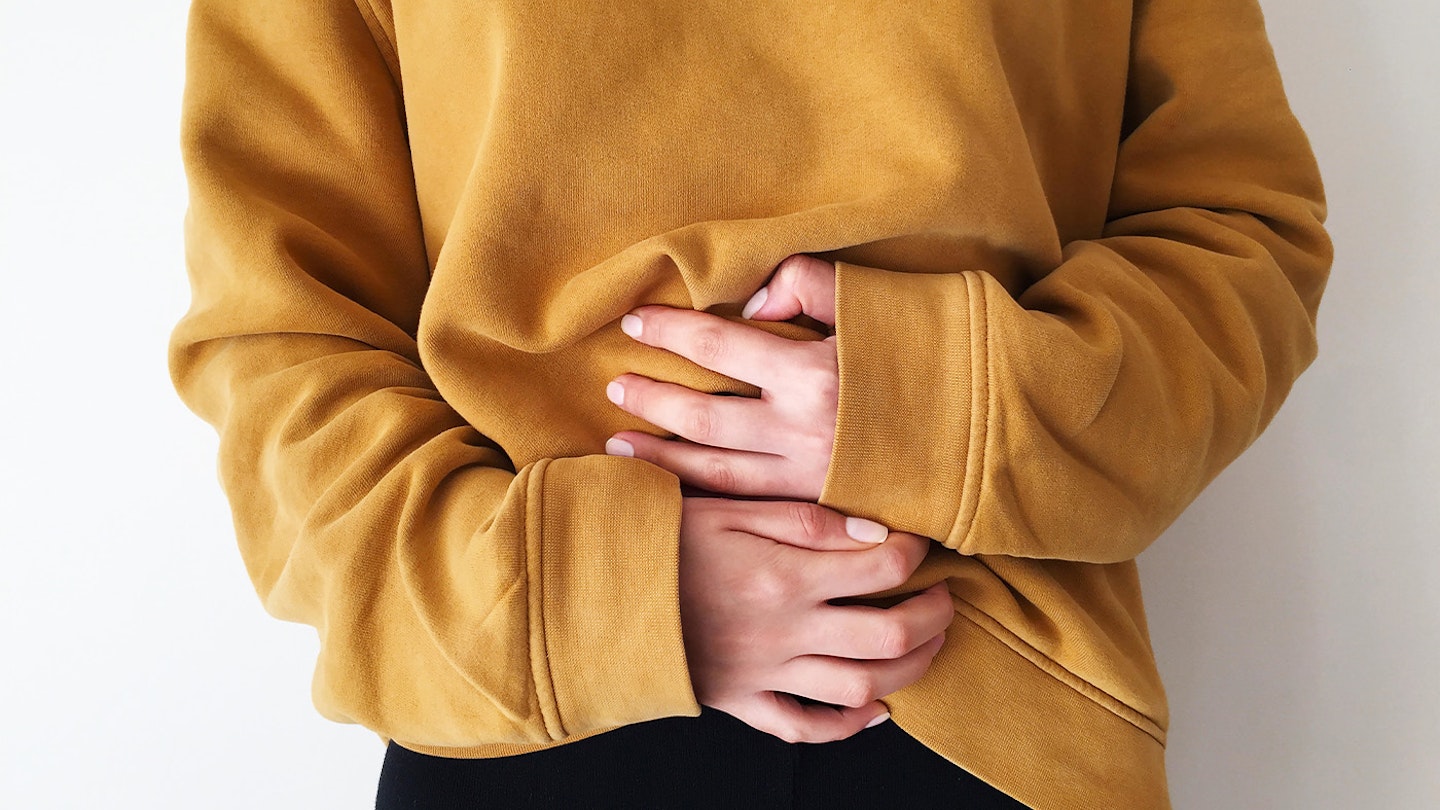It can be difficult to know if you're ovulating without using an ovulation test, but bloating during your menstrual could be a sign of ovulation and is known as ovulation bloating.
Your body goes through so many changes throughout your menstrual cycle, and one of the hormonal changes during ovulation is an increase in estrogen levels, which can result in mood swings and changes to your digestive tract.
Changes to your digestive tract can lead to increased water retention for several days, slowed digestion and increased gas. All this can lead to an uncomfortable bloated feeling that many women experience.
For most women, ovulation bloating tends to resolve without the need to do anything, from anywhere between a few hours to a few days later.
How to manage bloating during ovulation
While you can't completely resolve the bloating, there are a number of things that you can do to help ease it.
Limit your daily sodium intake
Probably the hardest thing to do as you there's a chance you just want comfort food, but avoid processed foods that are fatty and salty. These foods make your body retain water and can contribute to you feeling gassy too.
Try relaxation techniques
Relaxation techniques such as meditation can help to alleviate ovulation bloating. While you might have heard about the benefits of pregnancy yoga, there are yoga poses that you can do that to help to alleviate gas and encourage healthy digestion.
Eat more fish
Fish are naturally low in sodium, so it makes sense to increase the amount of fish that you eat to help ease bloating.
When should I see a doctor?
While bloating during ovulation can be completely normal for many women, if you experience bloating for more than a few days, we would recommend making an appointment with your doctor to check that it's not anything else.
Bloating during ovulation can also be caused by medical conditions like polycystic ovarian syndrome (PCOS), endometriosis, or an ovarian cyst.
What is ovulation?
Ovulation is the release of an egg from the ovaries and often happens mid-cycle of your menstrual cycle, around day 14 of a 28-day cycle.
What are other signs of ovulation?
If you aren't tracking your ovulation through an app or by using an ovulation test kit, there are more natural ways to tell if you are ovulating.
Cervical mucus
Some women will experience a small amount of discharge as estrogen levels increase, and it can cause changes to the consistency of your cervical mucus. This discharge is often a sign that your body is getting ready to ovulate or even that it’s just about to.
Breast tenderness
Often common during pregnancy too, breast pain can also be a sign that you will be ovulating soon.
Increased sex drive
Ovulation can naturally increase your sex drive, which is a bonus if you're trying to get pregnant. Certain sex positions can increase your chances of getting pregnant too.
Basal temperature changes
While this won't be obvious without using a basal thermometer, but if you're tracking your basal temperature, small changes in this can indicate when you are ovulating.
Pelvic pain
Also known as middle pain, ovulation pain is common and almost feels like a stitch.
Lorna White is a Senior Digital Writer and has written for Mother&Baby since 2020. She has a keen interest in a range of topics, from potty training and nutrition to baby names and maternity fashion.
